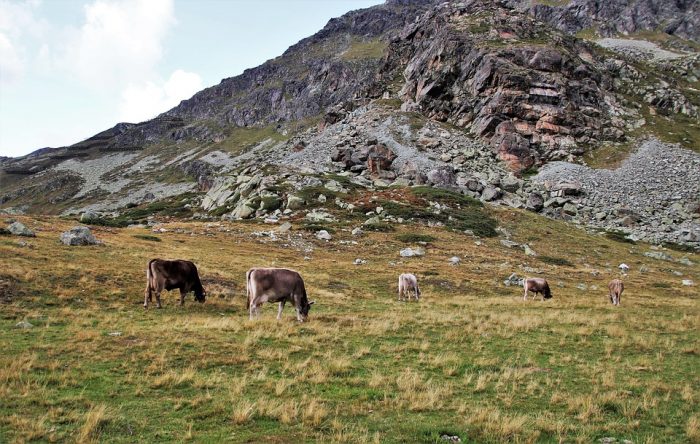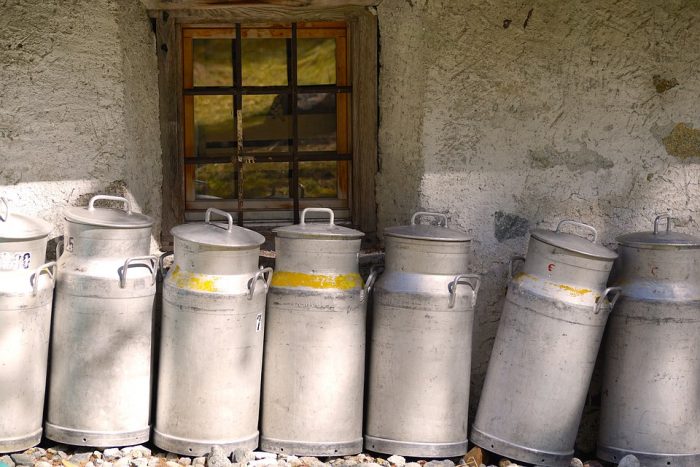
A new study finds that substantial reductions in the amount of meat consumed are necessary to prevent the breakdown of the climate and to avoid climate change related disasters.
The study finds that in western countries in particular, the consumption of beef would have to fall by some 90% and that this beef needs to be replaced with five times more legumes.
An Unsustainable Amount of Meat/Dairy Consumption
The study, recently published in the journal Nature, is the most comprehensive study ever to combine food data from every different country on the planet. The study aimed to determine how food production impacts the environment at large, and what could be done to food production systems to combat climate change.
The production of food is correlated with damage to the environment, such as deforestation, water shortages, the emission of greenhouse gases, and ocean dead zones. Without change to the current systems of food production, the impact on the environment will become much worse as the globe’s population rises to around 9.5-10 billion by 2050. Global incomes are projected to triple by that time, and more and more people will be able to eat western-style diets, rich in meat.
Marco Springmann from the University of Oxford, lead researcher on the study, explains that if the world proceeds down this trajectory, humanity would struggle to live as it smashed through environmental limits. Springmann says that the current system risks the sustainability of the entire global ecosystem and that the system must change if we want to be able to keep farming, eating, and living. Johan Rockström from the Potsdam Institute for Climate Impact Research in Germany agrees with Springmann, stating that feeding a population of around 10 billion people is possible, but only if major changes are made to how food is produced.
Springmann says that both technological and dietary changes to farms are essential and that these changes could be augmented by a great effort to reduce food waste and food loss. Currently, more than a third of all food produced never even reaches the table, while more food is wasted in preparation or goes uneaten.
Changing The Average Diet
The research team says that if the world is going to avoid an increase in global temperature above 2 degrees Celsius, a global shift to a “flexitarian” diet will be needed, where people eat mainly vegetarian foods with some flexibility. This diet requires that the average citizen of the world will have to eat around 90% less pork, 75% less beef, and 50% fewer eggs. To compensate for this, the average person will need to triple their consumption of beans and seeds by four to six times what they currently eat. Take note that this applies to the average person, as millions of people who live in poor, developing nations may need to eat more dairy and meat to be properly nourished.
Reducing the overall consumption of meat could be accomplished through various tactics like making changes to menus at workplaces/schools, putting taxes on the sale of meat, and creating subsidies for plant-based foods. In terms of addressing problems like deforestation, pollution, and water shortages that arise from the production of food, changes in farming practices are necessary. Policies to make farming more sustainable and efficient include enhancing crop yields, encouraging responsible use of fertilizers and creating better water storage systems around the globe. Springmann says that society needs to implement a number of different, ambitious options to reduce meat intake, pushing the edge of what is possible.

Photo: pasja1000 via Pixabay, CC0
There are already examples that the world can look to, countries already implementing the changes in farming and diet. For instance, Israel and the Netherlands are both making better use of their water and fertilizer, while young people in some urban centers are making drastic reductions in their meat consumption. Beyond this, Springmann argues that a global shift in consciousness is needed and that informed people should urge governments to be proactive. Springmann explains:
I think we can do it, but we really need much more proactive governments to provide the right framework. People can make a personal difference by changing their diet, but also by knocking on the doors of their politicians and saying we need better environmental regulations – that is also very important. Do not let politicians off the hook.
Peter Smith from the University of Aberdeen (not involved in the research), acknowledges that while food decision are personal choices people want to have the freedom to make, and that it is difficult to encourage people to change their behavior, the evidence on the topic states quite clearly that we need to change our diets if our society is to have sustainable food sources.
The Impact Of The Dairy/Meat Industry

Photo: suju via Pixabay, CC0
The new study was published shortly after a UN report was released urged immediate action if global warming is to be kept under 1.5 degrees Celsius. The report suggests that consuming less meat and dairy are important steps in reducing humanity’s impact on the environment, but noted that currently people around the world are consuming more dairy and meat.
Recently, a joint study done by the Institute for Agriculture and Trade Policy and GRAIN found that the five largest dairy and meat corporations in the world (Cargill, Fonterra, Dairy Farmers of America, Tyson and JBS) are responsible for more greenhouse gas emissions every year than one of the oil giants like ExxonMobil, BP, or Shell. These emissions result from agricultural processes like the production of crops to feed farm animals and the emissions released by those animals themselves. There are also less obvious emission sources, such as the release of emissions from farm machinery and emissions involved in the creation of chemicals used to grow food crops, grain, and palm oil.
While the oil/fossil fuel industry definitely accounts for more than its fair share of emissions (after all it takes the five largest meat and dairy companies combined to equal the emissions of one of the oil giants), emissions from the food sector are certainly worth highlighting and methods to reduce the emissions are worth investigating. The food sector in its entirety is thought to be responsible for around 29% of all greenhouse gas emissions coming from manmade sources.
Though meat and dairy companies like Tyson and Cargill have voiced commitments to reducing emissions, environmental activists and researchers say this won’t be enough to avoid catastrophic climate change. Nate Aden, a climate adviser from the World Resources Institute says that it is important to create regular, updated emissions reduction targets as a “way to hold accountable people who won’t be around at the company in 2050.”









